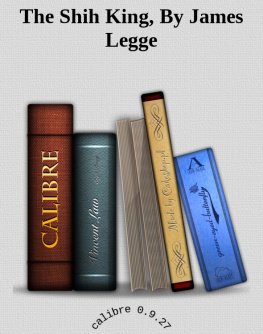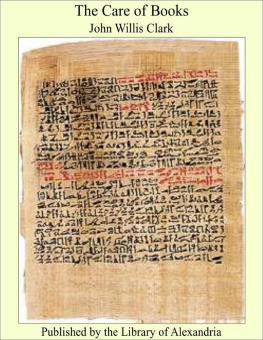THE PHILIPPINE ISLANDS, 1493-1898
Explorations by early navigators, descriptions of the islands and their peoples, their history and records of the catholic missions, as related in contemporaneous books and manuscripts, showing the political, economic, commercial and religious conditions of those islands from their earliest relations with European nations to the close of the nineteenth century,
Volume XI, 1599-1602
Edited and annotated by Emma Helen Blair and James Alexander Robertson with historical introduction and additional notes by Edward Gaylord Bourne.
Contents of Volume XI
Preface 9
Documents of 1599
Ordinances enacted by the Audiencia of Manila
(concluded). Francisco Tello, and others;
Manila, June, 1598-July, 1599 21
The hospital for Indians at Manila. Domingo
de Santiago and Antonio Valerio; Manila,
July 3 82
Letters from the royal fiscal to the
king. Hieronimo de Salazar y Salcedo; Manila,
July 21 86
Letter from the king of Borneo to Governor
Tello. Soltan Adil Sula; [June?] translated
July 27 120
Letters to the king. Francisco Tello; Manila,
July 14 and August 7 123
Letters to Tello. Felipe III; Denia, August
16 129
Documents of 1600
The pacification of Mindanao. [Unsigned and
undated; 1600?] 135
Oliver van Noordt's attack on Luzn. Francisco
Tello, and others; Manila, October-December
140
Documents of 1601
Report to the governor, on the battle
with the Dutch. Antonio de Morga; Manila,
January 5. 173
Annual letters from the Philippine
Islands. Francisco Vaez, S.J.; [Manila?],
June 10. 191
Letter to Felipe III. Diego Garcia, S.J.;
Manila, July 8. 223
Letter from the fiscal to Felipe III. Hieronimo
de Salazar y Salcedo; Manila, July 16. 228
Complaint of the cabildo of Manila against
Morga. Gonzalo Ronquillo de Vallesteros,
and others; Manila, July 20. 235
Letter to Felipe III. Antonio de Morga;
Manila, July 30. 251
Grant to Jesuit school in Ceb. Council of
Indias; Valladolid, December 11. 257
Documents of 1602
Instructions to Pedro de Acua. Felipe III;
Zamora, February 16. 263
Two royal decrees. Felipe III; Zamora,
February 16. 289
Pintados menaced by Mindanao pirates. Juan
Juarez Gallinato, and others; off Mindanao,
May 29-June 4. 292
Letters to Felipe III. L. P. Dasmarias,
and others; Manila, June 8-July 10. 302
Bibliographical Data. 317
Illustrations
Title-page of De rebus Iaponicis, compiled by John Hay,
S J. (Antverpi, M. DC. V); photographic facsimile, from copy
in Library of Congress. 187
Title-page of Relatione breve, by Diego de Torres (Milano,
MDCIII); photographic facsimile, from copy in library of
Harvard University. 189
Preface
During the three years or more covered in this volume (1599-1602), the most notable occurrence is the coming to the archipelago (in 1600) of the fleet commanded by the Dutch adventurer Oliver van Noordt, bent on plunder and the damage of the Spanish settlements there: but he is defeated and driven away, although with heavy loss to the Spaniards. This event, with the quarrels which it arouses in Manila, and fears of like danger in the future, disturb the colony for several years. The people, both Spaniards and Indians, are also in constant dread of the Moro pirates, who ravage the coasts of the Pintados (Visayas) Islands, encouraged to commit these depredations by the late withdrawal of Spanish troops from Mindanao. In the face of all these difficulties, the government is also embarrassed by the poverty of the local treasury; its funds are wasted by unnecessary expenses and salaries, and lessened by frauds in the customs duties, and by other violations of the laws regarding trade. There are too many officials, both secular and religious; and the former are often incompetent or corrupt. The Indians are demoralized by having learned the use of the white men's money; their native industries are neglected, which causes scarcity and high prices of goods and supplies. New impulse and wider scope are given to the missions conducted by the Jesuits, who begin the task of gathering the scattered Indian converts into mission villages, thus more easily to civilize and christianize the natives. A new governor for the islands is appointed, Pedro de Acua.
In this volume is completed the document begun in Vol. X, "Ordinances of the Audiencia enacted in 1598-99;" here are presented those for the first half of the year 1599. The alcaldes-mayor must, in collecting the taxes, observe the royal tariffs. To remedy the exorbitant charges for fees in the inferior courts, all suits appealed to the Audiencia must be accompanied by a sworn statement of the fees thus paid. The bonds accepted in law-suits must be more reliable. Auditors are given special powers in expediting the cases of persons imprisoned. Interpreters are not allowed to trade with the natives, except in the presence of a magistrate. The accounts of guardians of minors shall be examined by the probate judge. Attorneys are restricted in bringing new suits between Indians. Goods sold at auction for the benefit of the royal treasury must be knocked down to the highest bidder, and for cash only. Lawyers are ordered to follow the customs of the natives, where these are involved in lawsuits. Collection of tributes shall not be made by the alcaldes-mayor; and appointments for the post of collector must be approved by the Audiencia. Various acts prescribe the duties of officials of the Audiencia, and its procedures in certain cases; also limits of action by attorneys. The officials of the Audiencia shall give bonds each year. Cases involving twenty pesos or less shall not be brought to trial. Directions are given for the trial of suits between Indians. The alguazils-mayor must make the rounds of the city at night. All accounts due to or from the royal treasury shall be closed up and balanced within the next four months. Officials of the Audiencia shall not go outside of the city without permission. Certain punishments are prescribed for the Chinese inhabitantsfor vicious practices, for making or clipping coin, and for buying stolen goods from Indians. All natives residing in Manila who have not some employment are ordered to leave the city at three days' notice. The duties of the late Alvaro ambrano, deceased, are to be assumed by others of the auditors. Provision is made for due inspection, appraisal, and sale of merchandise brought from China. All Indians belonging to the royal encomiendas must pay their tributes, even when they reside in Manila. The sum of three hundred pesos is appropriated to furnish and adorn the chapel of the Audiencia. The Chinese are forbidden to have godchildren, a practice which has led to many evils; and the Christians are ordered to follow the occupations which they had exercised before their conversion. Officials whose terms of office expire must furnish residencia before receiving any further appointment.
On July 3, 1599, one of the Franciscans in charge of the hospital for the Indians at Manila writes to the king, asking further grants of aid for its work. The governor and bishop are directed by the king to advise him as to the needs of the hospital. A letter from the royal fiscal to the king (July 21) displays the needs of the royal exchequer in the islands, and suggests means for supplying these. He complains of the burden imposed on the colony by the support of an archbishop and three bishops. Much is wasted in salaries, for useless or nominal services. Salazar y Salzedo advises that the offices and their salaries be both reduced. Especial loss and injury to the royal income arises from the frauds and violations of law which are practiced in the Mexican trade. The payment of tributes by the Indians in money is demoralizing them; they no longer pursue their former usual labors, and their products are now scarce and high-priced. They ought to be compelled to work, at agriculture, stock-raising, and mining. The treasury needs more money, and more Indians should be assigned to the crown. Encomiendas are fraudulently assigned by the governors. The erection of wooden churches in the encomiendas is another source of useless expense; these should be built of stone or brick. Certain offices should be taken from their present incumbents, and conferred on men of character and standing. The fiscal complains of lax management of the treasury by its officials, and calls for an investigation; and the same with the cabildo of Manila. Other charges where public moneys are involved should be inspected by the crown, and the waste of those funds should be checked. Even all these reforms will not provide all the funds for necessary expenses; the fiscal therefore proposes that the crown monopolize the trade in spices and raw silk, which would bring immense profits to the royal treasury. Another letter from the fiscal to the king, of the same date, makes recommendations as to certain affairs of government. He urges that the auditors should make regular official inspection of the administration of justice throughout the islands. He complains that the profits of trade are absorbed by the officials and their dependents, leaving the citizens poor. Offices and other sources of profit must not be bestowed on those dependents, but on the citizens; and the officers of the ships that carry goods to Nueva Espaa should not be appointed there, but in the islands. The ships should be more strictly inspected.








